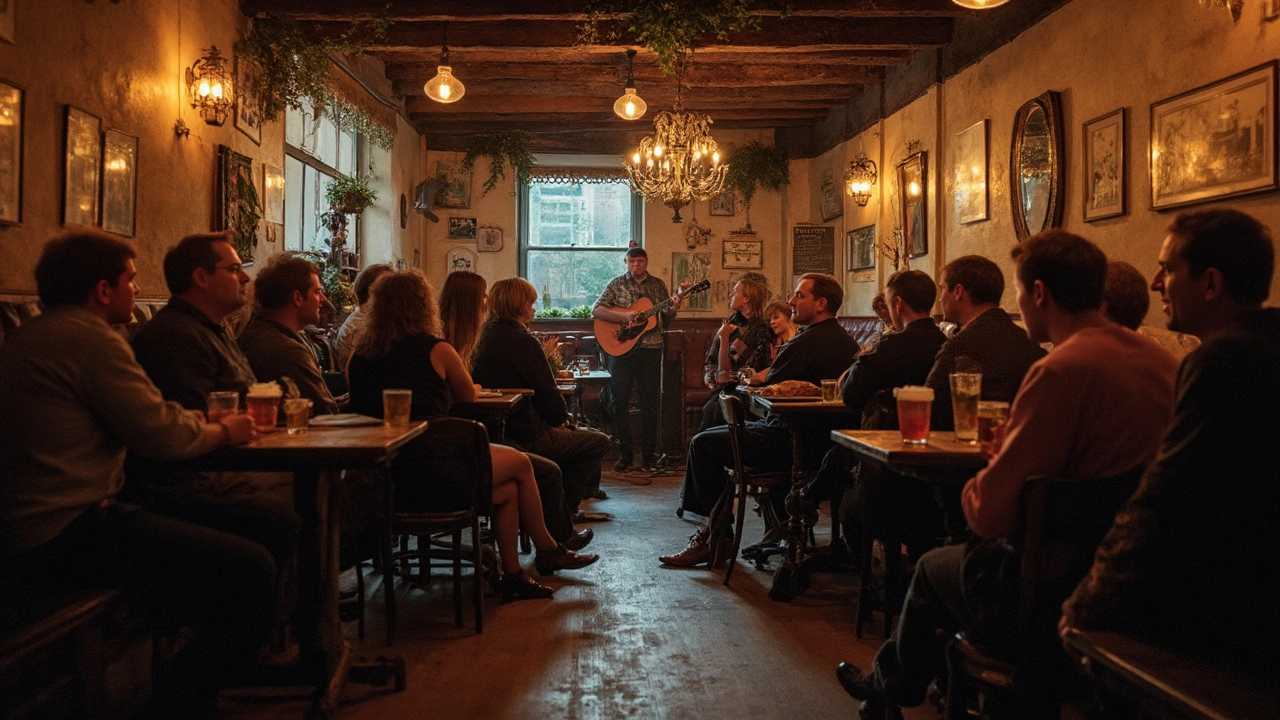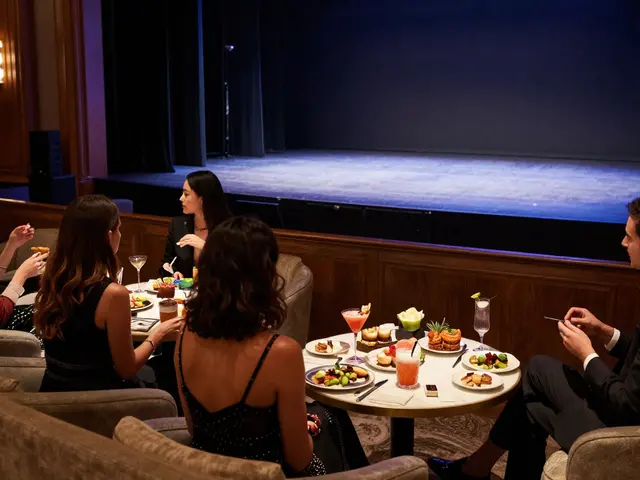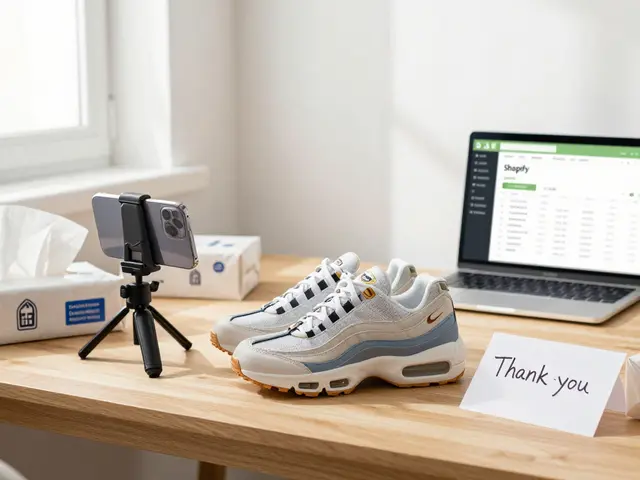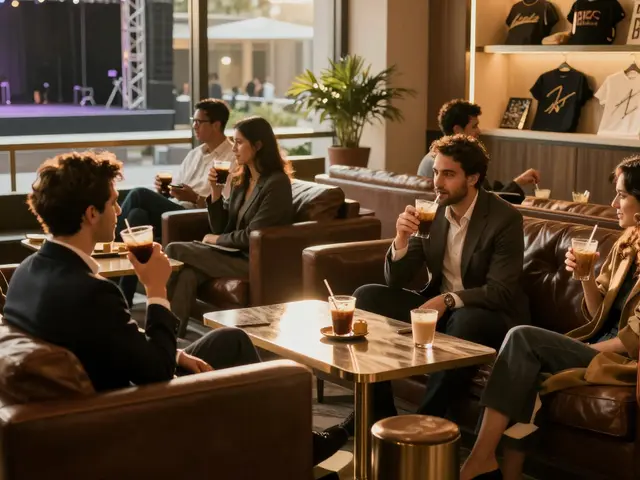So, you're planning to hit up a concert soon and might be wondering just how long you'll be on your feet, swaying along with the music. Whether you're all about squeezing out every last note or aiming to avoid feeling like you've just run a marathon, understanding concert lengths can be pretty handy.
Generally, concerts last between 90 minutes to three hours, depending mainly on the artist and music style. Pop concerts can stretch on especially with mega art performers pulling out all the stops, including guest appearances and extensive encores. Meanwhile, smaller venues or lesser-known acts might wrap things up a bit quicker. But, don't just stop here; there’s way more than meets the eye (or ear, in this case) when determining concert durations.
- The Ideal Concert Length
- Factors Affecting Concert Duration
- Audience Preferences and Expectations
- Tips for Enjoying Concerts of All Lengths
The Ideal Concert Length
When it comes to concert durations, there isn't a strict one-size-fits-all standard. Many factors play a role, from the genre of music to the venue size. Yet, there are typical durations that most concerts tend to fall in.
For big arena shows, concert durations often range from two to three hours, usually with an intermission. This gives performers a chance to recharge and audiences some time to grab refreshments or hit up the merch stands. On the other hand, smaller club gigs might last 90 minutes straight through, offering an intimate experience.
Genre and Artist Influence
Pop and rock concerts particularly lean towards the longer side. Artists like Bruce Springsteen and Paul McCartney are known for marathon performances, sometimes clocking in over four hours! In contrast, punk and indie bands often keep their sets tight and packed with energy, usually wrapping up in 60 to 90 minutes.
Classical music concerts, interestingly, have a more formal structure with preset durations—symphonies typically last around two hours, including an intermission. Jazz performances might last longer, giving musicians the freedom to explore improvisations.
Audience Preferences
Audience expectations also shape concert duration. An older crowd might prefer a shorter, more succinct experience, while younger audiences are likely up for longer events with lots of engagement, like light shows and visual effects. A key thing to keep in mind: longer isn't always better. It's about the richness of the experience, balancing energy, enjoyment, and comfort.
So, next time you're at a show, take a moment to think about how these elements come together for an ideal experience. And hey, every concert is a little different, which is exactly what makes them magic!
| Genre | Typical Duration |
|---|---|
| Pop/Rock | 2-3 hours |
| Indie/Punk | 1-1.5 hours |
| Classical | 2 hours |
| Jazz | Varies, 2+ hours |
Factors Affecting Concert Duration
Alright, let's get to the nitty-gritty of why some concerts make you lose track of time while others leave you wanting more. Several factors come into play when figuring out how long a concert will last, and understanding these can help you manage your expectations—or even determine which shows you want to attend.
Type of Artist and Music Genre
The kind of artist you're seeing can heavily influence the concert's length. For example, pop concerts often have elaborate performances with multiple costume changes and dancers, leading to longer shows. On the other hand, punk or rock bands might focus more on pure music, resulting in a more intense but shorter performance.
Venue and Location
Venue size can also be a game-changer. In smaller, intimate settings, like jazz clubs, performances might run shorter, focusing on the quality of delivery over elaborate extras. Meanwhile, artists at large arenas often have to fill the space with more than just music, emphasizing lighting, visuals, and extra acts to maintain the crowd’s energy over extended durations.
Setlist and Encores
The setlist is another major element. Legendary bands with decades' worth of hits might play longer sets, squeezing in fan favorites. Plus, encores can add an extra 15-30 minutes to the program as artists come back to give the people more of what they love.
Technical and Logistical Constraints
Logistics like sound checks, equipment setup, and local noise ordinances can also impact a concert’s duration. Artists might have to wrap up promptly due to curfews in places with strict noise restrictions, especially at outdoor venues.
Audience Engagement
Believe it or not, your energy as an audience member plays a role too. If the crowd is pumped up and engaged, artists are often thrilled to extend their performances. Packed venues feeding off the performance's vibe could encourage artists to throw in unexpected songs or jams, stretching the scheduled runtime.
In a nutshell, the duration of a concert isn't a one-size-fits-all kinda deal. Considering these factors can give you a good idea of what to expect, allowing you to plan better and make the most of your music event experience.

Audience Preferences and Expectations
When it comes to concert-goers, preferences can be as varied as a mixed tape. Some folks want their favorite band to play on until the sun comes up, while others might be ready to head home after the initial encore. Audience demographics play a big role in shaping these preferences. For instance, a younger crowd at a pop concert may have the stamina for a full three-hour marathon, while jazz enthusiasts might favor the shorter, more intimate sessions.
Expectations can also be shaped by the music event itself. A festival that features multiple artists usually offers shorter sets for each performer. This keeps the energy fresh and the audience engaged across longer spans. In contrast, a dedicated concert for a single band may last longer, especially if the band is known for their lengthy jam sessions, like Phish or Bruce Springsteen, where concerts often push past the three-hour mark.
Understanding the Audience
Audiences often have unspoken expectations based on the genre of music and the venue. For instance, an opera or classical music audience expects a performance split into acts with formal intermissions, whereas rock or live performances might dive straight through with only a brief pause.
There’s also an element of surprise and spontaneity expected. Who doesn't love an unexpected cover song or a special guest appearance? These elements can subtly extend the concert duration, turning a regular night into something legendary.
Let's not forget comfort and convenience play a role too. Venues with ample seating and easy access to amenities can make even the longest concert seem like a breeze, whereas cramped, standing-room-only situations might encourage shorter stays. In the end, whether an event meets the audience's expectation can often sway its perceived success regardless of actual length.
Tips for Enjoying Concerts of All Lengths
Whether you're settling in for a cozy acoustic set or gearing up for an extended arena blowout, having a game plan can make all the difference. Here are some practical tips to ensure you’re having a blast, no matter how long the concert lasts.
1. Hydrate, Hydrate, Hydrate!
You've probably heard this a million times, but it really matters, especially at longer shows. Pack a reusable water bottle if the venue allows it. Staying hydrated helps maintain your energy levels and keeps you dancing to your favorite tunes all night. According to Dr. Lisa DeFazio, a nutrition expert, "Keeping hydrated not only boosts energy levels but also enhances focus and mood."
2. Dress for Comfort
It's tempting to go all out with your concert outfit, but remember you're there for the long haul. Comfortable shoes are a must, especially if you'll be on your feet for hours. A light jacket comes in handy too since open-air venues can get chilly when the sun goes down.
3. Manage Your Time Well
Lining up early can get you the best view in general admission spots, but be mindful of the clock. Arrive just in time to enjoy the opening acts without burning out too soon. If you’ve got multiple sets to catch, keep a rough schedule in mind to avoid missing your favorite bands.
4. Fuel Up
Avoid running out of steam midway through. Grab a bite before the concert or during intermissions. Many arenas now boast pretty impressive food courts, and there’s usually something for everyone.
5. Know When to Take a Break
Concerts can get overwhelming. Step out for a breather if you need to, or find a quieter spot for a quick reset. Listen to your body. It's okay to take breaks; the music will still be there when you return.
"Concerts should be about the full experience—not just surviving the duration," says noted music journalist David Barton.
Strategize ahead, and you'll be the person who still has energy for the after-party once the concert wraps up. Enjoy the music and make some unforgettable memories!





